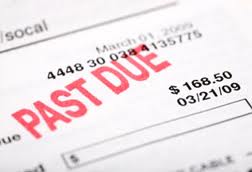 Yesterday I was back for a full day after being sick with the flu for a few days. The day was surprisingly productive. Many people have asked me what we can do for people with student loans. This question is often combined with a statement that they thought nothing could be done.
Yesterday I was back for a full day after being sick with the flu for a few days. The day was surprisingly productive. Many people have asked me what we can do for people with student loans. This question is often combined with a statement that they thought nothing could be done.
To the contrary, here are the results for our Tampa Bay clients just yesterday. First I received an email from a client who thanked our law firm for greatly improving the quality of his life. You see when this client initially contacted us six months ago he owed over six figures in private student loans and could see no end in sight – he was in his late 50s. The student loan companies were always asking him to make payments for more than he could afford. He was single, healthy and able to work making 40k a year. Despite this, we put him in a bankruptcy and filed an adversary proceeding asserting that he was due a partial discharge due to the non-affordability of the private student loans among other things. Within a few months, we had negotiated settlements with both servicers of his student loans which included substantial principal (50% or greater) and interest rate reductions (to 0-2%) and an affordable monthly payment plan.
Another client returned a signed rehab agreement to us today where she accepted the $10 a month payment plan we had negotiated for her to bring her federal loans current and remove the default on her credit report. She had narrowly avoided garnishment by hiring us just in time. When her rehab is done, we’ll put her into a specific income based debt forgiveness plan that takes into account her loan types, marital status and type of employment for the best result.
 Reboot Your Life: Tampa Student Loan and Bankruptcy Attorney Blog
Reboot Your Life: Tampa Student Loan and Bankruptcy Attorney Blog






